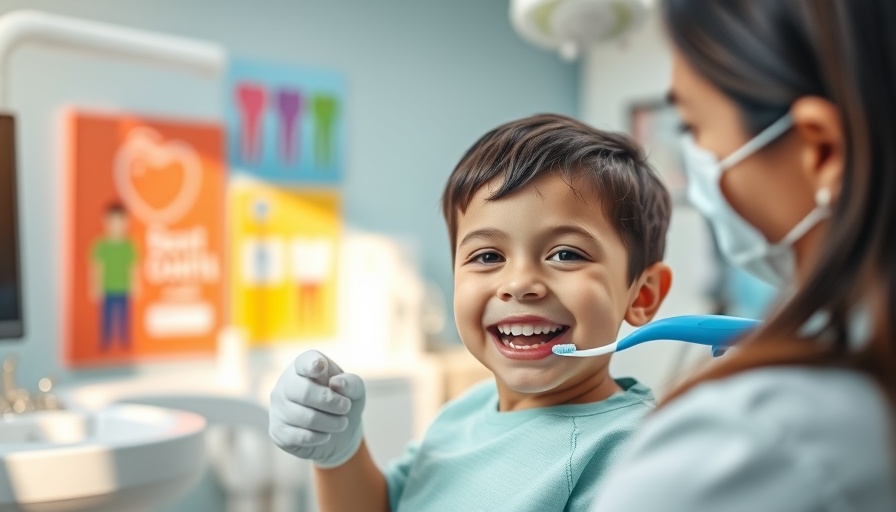
Your Smile is Worth Saving: Recognizing National Children's Dental Health Month
February isn't just a month marked by the arrival of chilly winds; it’s National Children’s Dental Health Month. This annual highlight provides a perfect opportunity for parents, educators, and children alike to spotlight something many often take for granted: oral health. Because let’s face it, a beautiful smile is one of the best accessories anyone can wear. But more than just looks, maintaining good oral hygiene is pivotal for overall well-being and mental health.
How Your Dental Health Impacts Your Body
Dental health isn’t isolated to the mouth; it influences the entire body. The mouth is a gateway harboring a battalion of bacteria. While not all bacteria are harmful, neglecting oral hygiene can pave the way for adverse health outcomes, including heart disease and even pneumonia. Studies reveal that dental professionals often glean insights into systemic conditions like diabetes merely by observing a patient's oral condition. Untreated cavities can trigger pain and even lead to challenges in eating, speaking, and learning—essential skills for children.
Moreover, consider the emotional effects of poor dental health. Children with visible oral issues may face bullying or social exclusion, leading to low self-esteem and anxiety. Raising awareness about these consequences can help caregivers understand the depth of dental care beyond just physical health.
The Essentials of a Solid Dental Care Routine
In order to ensure optimal health, adopting a consistent dental care routine is essential. Here’s how you can arm your child with a robust oral hygiene regimen:
- Brush teeth for around three minutes, twice daily, with fluoride toothpaste.
- Don’t skip brushing the tongue and gums, which accumulate plaque.
- Floss daily, or turn to dental picks if braces or retainers are in play.
- Rinse with a suitable mouthwash nightly to combat lingering bacteria.
This may seem straightforward, but instilling these habits can take time and patience. However, the long-term benefits far outweigh the short-term challenges. Regular dental check-ups are also crucial in identifying potential issues early on.
The Connection Between Dental Health and Mental Well-Being
Recent research underscores a profound connection between mental health and dental hygiene. Children with dental problems often feel self-conscious about their smiles. This can lead to reluctance in social settings, negatively impacting their mental state. As parents, talking openly about dental health can encourage kids to take pride in their smiles and consider it as part of their overall health.
Visit your local dentist regularly; these visits provide children with a supportive environment to discuss any concerns they might have regarding their dental health. Remember, healthy teeth can foster confidence, allowing children to engage actively in social situations.
Taking Action: Supporting Children's Dental Health•
As we embrace National Children’s Dental Health Month, it’s imperative to understand that dental hygiene should be a year-round commitment. March should not wipe away February’s buzzing conversation; rather, it should ignite it further! If you notice signs of gum pain, swelling, or unusual tastes in your child’s mouth, don’t hesitate to consult a dentist. They can guide you in the right direction, often helping to identify underlying issues early.
Furthermore, if you’re keen to learn more about the intricate connection between dental care and overall health, the Center for Family Medicine invites queries. Helping children understand their unique health profiles is vital to instill lifelong dental habits.
Join Us in Promoting a Healthier Future
As February draws to a close, remember that a healthy mouth leads to a healthy body and mind. Celebrate your children’s radiant smiles and empower them to cherish their dental health all year round. Join our educational events, share experiences, and let’s make a difference together. Every small step taken towards instilling dental awareness and hygiene practices can lead to remarkable changes in our community.
Let’s make their smiles shine brighter than ever!
 Add Row
Add Row  Add
Add 



Write A Comment